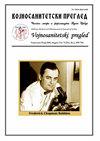Correlation between clinical severity and quality of life in moderate to severe psoriasis patients: Real-world evidence
IF 0.2
4区 医学
Q4 MEDICINE, GENERAL & INTERNAL
引用次数: 0
Abstract
Background/Aim. Psoriasis is a chronic multisystem, inflammatory and immune-mediated dermatological disease of a relapsing nature. It does not only affect objective parameters such as skin and joint, with different intensity involvement with changes and the degree of changes but also significantly affects the health-related quality of life. The aim of the study was to determine the clinical severity and quality of life of patients with moderate to severe psoriasis and to examine the association between those parameters before and after the treatment. Methods. This cross-sectional study included 183 patients diagnosed with moderate to severe psoriasis. The severity of the clinical picture was determined by calculating Psoriasis Area and Severity Index (PASI) by a dermatologist, while the quality of life was assessed using Dermatology Life Quality Index (DLQI) questionnaire and the Psoriasis Life Stress Inventory (PLSI). Disease severity and quality of life were measured at the baseline visit and after 16th week of therapy. Results. The average PASI score at the beginning of therapy was 23.1?6.5, while after the 16 weeks, this value was 4.36?4.86. The DLQI score was 20.8?5.0 at the start of therapy and 6.20?6.16 after 16 weeks. The PLSI score was 35.37?8.84 initially and 12.75?12.82 after the 16 weeks of therapy. On the assessment of the correlation between the PASI and PLSI, the PASI score was found to be in a high positive correlation with the PLSI (r=0.702, ?<0.001) in the 16th week of therapy, but the correlation is moderate between the DLQI and PASI (r=0.683, ?<0.001). We failed to find any significant differences between PASI and DLQI scores (r=0.080, ?=0.284) and between PASI and PLSI scores (r=0.109, ?=0.140) in the baseline. Conclusion. Patients with severe psoriasis experience a significant reduction in their quality of life, accompanied by a high level of psychosocial stress. Observed improvements in quality of life have shown a moderate correlation, while lower levels of psychosocial stress have strongly correlated with the severity of the clinical presentation. This may indicate a complex interaction between psychological factors and physical health in patients with psoriasis.中重度牛皮癣患者临床严重程度与生活质量的相关性:真实世界证据
背景/目的。银屑病是一种慢性多系统、炎症性和免疫介导的反复发作性皮肤病。它不仅影响皮肤和关节等客观参数,以不同的参与强度和变化程度,而且显著影响与健康相关的生活质量。该研究的目的是确定中重度牛皮癣患者的临床严重程度和生活质量,并检查治疗前后这些参数之间的关系。方法。这项横断面研究包括183名诊断为中度至重度牛皮癣的患者。临床症状的严重程度由皮肤科医生通过计算牛皮癣面积和严重程度指数(PASI)来确定,而生活质量则通过皮肤病生活质量指数(DLQI)问卷和牛皮癣生活压力量表(PLSI)来评估。在基线访问和治疗第16周后测量疾病严重程度和生活质量。结果。治疗开始时PASI平均评分为23.1 ~ 6.5,治疗16周后为4.36 ~ 4.86。治疗开始时DLQI评分为20.8 ~ 5.0,治疗16周后为6.20 ~ 6.16。治疗初期PLSI评分为35.37 ~ 8.84,治疗16周后PLSI评分为12.75 ~ 12.82。在PASI与PLSI的相关性评估中,治疗第16周PASI评分与PLSI呈高度正相关(r=0.702, 0.001), DLQI与PASI呈正相关(r=0.683, 0.001)。我们没有发现PASI和DLQI评分之间(r=0.080, ?=0.284)以及PASI和PLSI评分之间(r=0.109, ?=0.140)在基线上有任何显著差异。结论。严重牛皮癣患者的生活质量显著下降,并伴有高水平的社会心理压力。观察到的生活质量的改善显示出适度的相关性,而较低的社会心理压力水平与临床表现的严重程度密切相关。这可能表明牛皮癣患者的心理因素与身体健康之间存在复杂的相互作用。
本文章由计算机程序翻译,如有差异,请以英文原文为准。
求助全文
约1分钟内获得全文
求助全文
来源期刊

Vojnosanitetski pregled
MEDICINE, GENERAL & INTERNAL-
CiteScore
0.50
自引率
0.00%
发文量
161
审稿时长
3-8 weeks
期刊介绍:
Vojnosanitetski pregled (VSP) is a leading medical journal of physicians and pharmacists of the Serbian Army. The Journal is published monthly.
 求助内容:
求助内容: 应助结果提醒方式:
应助结果提醒方式:


